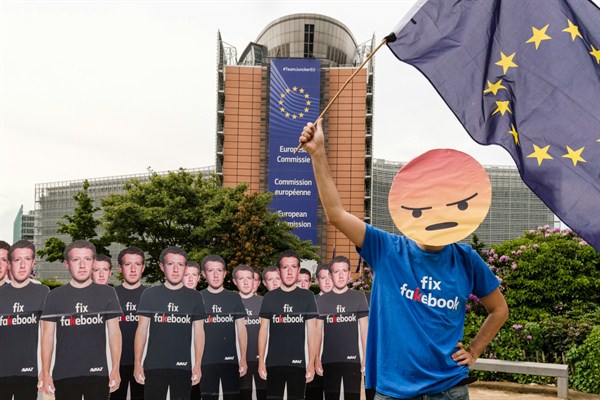The European Commission recently announced that it would step up its efforts to fight disinformation online. Despite the prior reluctance of several commissioners to name any specific foreign governments, the newly published policy document, called a Communication, singles out Russia for practicing information warfare and aims to establish what it calls “a European approach” to tackle these and other forms of hybrid interference. This new approach will focus on improving transparency, promoting media diversity, fostering credible sources of information and devising long-term solutions to tackle disinformation in Europe.
The announcement comes at a time when the European Union’s existing in-house efforts against disinformation are under fire. Its “EUvsDisinfo” campaign, which was launched by a unit known as the East StratCom Task Force with the aim to better forecast, address and respond to pro-Kremlin disinformation, has been criticized over the involvement of EU civil servants in fact-checking news sources and what is described as “myth-busting.” As critics have pointed out, “the media should check on the state, not the other way around.”
The controversy, and a similar one over proposed legislation in France to counter disinformation campaigns during electoral periods, raises a number of important questions. Who is best equipped to identify and respond to state-led foreign interference: journalists, academics or governments? Do journalists and academics have sufficient resources and means of protection to identify and deal with state-sponsored propaganda? Does everyone need to be on the defensive? In the end, governments have a role to play, but the extent of that role remains a point of debate.

